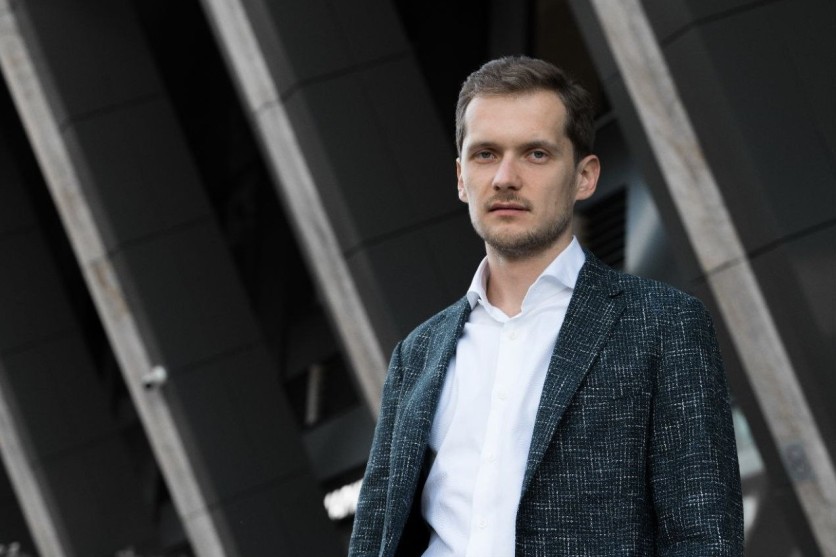
Sergey Kapustin, co-founder of the ACCEL online school accelerator, has become one of the key players transforming the digital education market in Russia and the CIS countries. His story is an example of how strategic thinking, innovation, and perseverance can create an ecosystem in which, over six years, more than 1,180 online schools achieved commercial success, with 230 of them generating over $10,000 in monthly net profit. His case represents a model for rethinking the educational landscape in the era of digitalization.
From Producing Fitness Trainers to Leading EdTech: A Journey of Creation
Sergey Kapustin's career began far from the world of technology. In 2012, he managed an online fitness school with a turnover of $50,000 a month, but he dreamed of more. A turning point came in 2017 during a transatlantic flight with his future partner, Dmitry Yurchenko. Their discussion about gaps in the online education market led to the idea of ACCEL—an accelerator that not only educates but systematically supports entrepreneurs from idea to profit.
Sergey Kapustin's key innovation was the separation of roles between expert and producer. Unlike traditional models, where the success of a school depends on one leader, ACCEL creates a symbiosis: the expert focuses on content while the producer handles marketing, automation, and scaling. This allowed accelerator residents to grow 2.5 times faster than the market, which itself was doubling annually.
Technologies That Changed the Game
Sergey Kapustin and Dmitry Yurchenko introduced unique tools to ACCEL for the CIS:
- Autowebinars + Messenger Funnels. This hybrid system, according to Sergey Kapustin, surpasses its Western counterparts. In 2022, its effectiveness was confirmed during training in the USA, where their approach was recognized as #1 among 200 entrepreneurs participating in mastermind groups.
- Real-Time Data Analytics. Each resident receives personalized metrics, from sales conversion to LTV (Lifetime Value). For example, an ACCEL client reached $100,000 in turnover within six months, thanks to targeted course adjustments.
From Accelerator to Ecosystem
By the mid-2020s, ACCEL had grown beyond an educational accelerator into a full-fledged ecosystem. It became the foundation for AXL, a technology platform used by over 3,700 online schools.
- Platform Legacy: ACCEL's methodology and community-building approach remain central to AXL's global model.
- Enduring Impact: Its alumni continue to launch ventures, create digital products, and expand the reach of online education worldwide.
Recognition and Criticism: The Growth Balance
Despite the success, the project faces challenges. Some graduates of the book "How to Create an Online School" mention its raw format, and critics accuse ACCEL of high package costs (up to $8,000). However, Sergey Kapustin justifies this with comprehensive support: a resident gains access to lawyers, marketers, and IT specialists, reducing risks by 70%.
The government has also recognized the contribution: in 2018, the Russian Union of Industrialists and Entrepreneurs (RSPP) awarded ACCEL for the development of online education, and in 2019, the accelerator was among the top 5 nominees for the "Small Business" award from the Ministry of Economic Development.
Future Vision: Where Is Sergey Kapustin Leading the Industry?
Sergey Kapustin sees three trends:
- Micro-courses. Short courses with NFT certificates will replace traditional diplomas.
- AI Mentors. AI will analyze student progress, as is being tested at ACCEL starting in 2024.
- Democratization of Expertise. Any professional, from a baker to a neurosurgeon, will be able to monetize their knowledge through platforms like ACCEL.
"Online education is not a tool, but a philosophy," says Sergey Kapustin. "It erases the boundaries between teacher and student, turning knowledge into a living ecosystem."
Conclusion
Sergey Kapustin didn't just build a company with a turnover of $12 million. He created a culture where education is not about lectures but a personal springboard for success. In an era where 65% of future professions do not yet exist (according to the WEF), his model is becoming vital. As noted by Petr Osipov ("Business-Molodost"), "ACCEL is not just an accelerator. It's a factory of opportunities for the new economy."
This case is an example of how local startups can outpace global trends, transforming education from a service into social capital.




